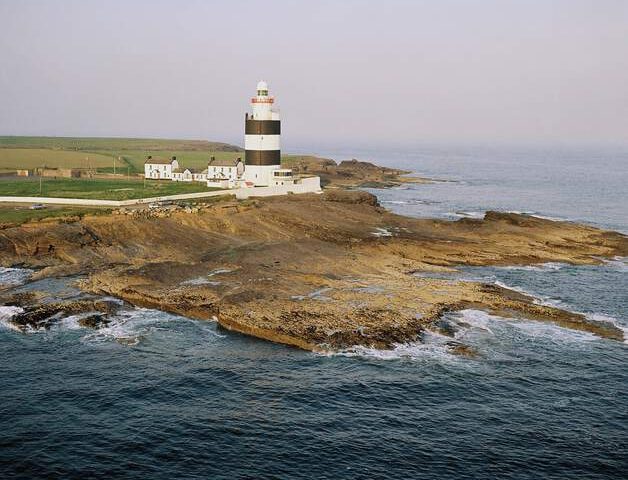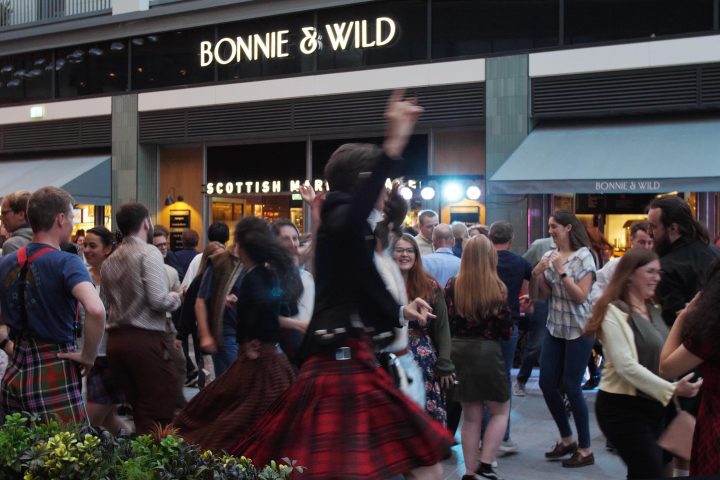Best of Scotland Holidays are proud members of SIGTOA (Scottish Inbound Golf Tour Operator Association) where all members agreed as an association to a partnership with the Woodland Trust to off-set the carbon emissions on our inbound golf tours.
With sustainability and eco-consciousness becoming such an important factor when it comes to travel we believe it’s important to understand what more we can do to mitigate the damage caused to nature by day-to-day human existence. Awareness events, such as International Dark Skies Week are a fantastic way to learn and join a community of people who are passionate about giving back to our beautiful planet.
What is Dark Skies Week?
International Dark Skies Week is an annual week of awareness created to bring attention to problems created by light pollution and promotes solutions to lessen the damage caused by unnatural light. The initiative encourages participants to turn off their lights to observe the natural night sky in all its beauty and without light pollution with the key aim to encourage the use of better lighting systems and promote the study of astrology.

When is it?
It was created by Jennifer Barlow, who was a high school student at the time, in 2003. It has now, almost 20 years later, grown into a worldwide event held in April as part of Global Astronomy Month. It doesn’t have a set date as such as it occurs during the week of the new moon as this is when the sky can be dark as possible for the best viewing experience. This year however, we can expect this to take part from 22nd – 30th April.
How to get involved?
Participants commit to reducing all unnecessary indoor and outdoor lighting. The International Dark-Sky Association suggest several ways you can do this including using outdoor lights only when required, confine lights to specific areas, reduce the brightness of lights and use lights that face downwards, known as fully shielded fixtures, as this helps to prevent over illumination.

Why should I get involved?
There are several negative effects of light pollution on many differing groups in nature. Here are some of the key groups affected:
Nocturnal Wildlife:
Many nocturnal animal species have been known to be affected by artificial light as it can interfere with their natural instinct to reproduce, feed and remain safe. For example, alterations caused by artificial light has negatively changed the feeding behaviour of some insects, fish and reptiles. Sea turtles can mistake the reflection on electric lights for the shimmer of the ocean leading them to flock outside of their nests and into areas hazardous to them.
Plants and Trees:
Artificial light can disrupt the interpretation of seasonal changes in plants and trees making them less well adjusted to seasonal changes in the weather.
Humans:
The circadian rhythm that controls the human sleep cycle can be disrupted by exposure to light during what would traditionally be sleeping hours. It has been documented that decreases in melatonin that regulates this rhythm for those exposed to light pollution of the night sky.
Astronomers:
For those with a keen interest in the stars it makes a noticeable difference in viewing quality in areas with significantly less light pollution than in our big cities. Ultimately, the more we can see the more we can learn. By increasing the participants in Dark Skies Week, we can all experience a better experience of star gazing.
Economic Resources:
Conservation efforts and efficiency is imperative for environmental responsibility and although the creation of LED lights, motion sensors and dimmers have played a big part in reducing the amount of energy we use, we still have a long way to go. Leaving unnecessary lights on can lead to a massive waste of economic cost expenditures.

You can see what events and activities are happening over Dark Skies in the UK here or see some of our customisable packages here.







